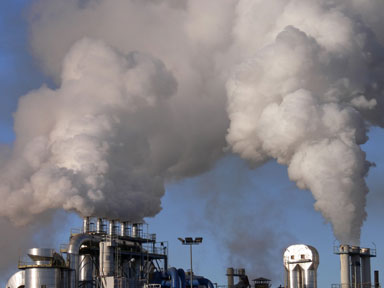Project to reduce greenhouse gas emission
The project 'Promoting Sustainable Biomass Energy Production and
Modern Bio-Energy Technologies' funded by the Global Environmental
Facility (GEF) is a joint initiative of the Food and Agriculture
Organization (FAO) and United Nations Development Program (UNDP) with
the Sri Lanka Sustainable Energy Authority of the Ministry of Power and
Renewable Energy being the implementing partners.
The main objective of this project is to reduce greenhouse gas
emissions due to the use of fossil fuel for thermal energy generation in
the Sri Lanka industrial sector.
Sri Lanka depends largely on imported oils and firewood to meet its
energy needs. Biomass is the main source of energy in industry (72%),
followed by petroleum products (18%), and electricity (12%). About 10%
of the imported petroleum products (coal, fuel and gas) amounting to
350,000 to 400,000 tons per annum, is utilized by the industrial sector
to generate process heat.
 Recent technological developments related to modern conversion
technology and improved energy crop production has made it possible to
produce biomass energy at lower cost and with higher conversion
efficiencies. This makes biomass-energy competitive among other
commercial fuels. Recent technological developments related to modern conversion
technology and improved energy crop production has made it possible to
produce biomass energy at lower cost and with higher conversion
efficiencies. This makes biomass-energy competitive among other
commercial fuels.
This intervention by the project will support the Government to
replace 10% of the fossil fuels used in the industries to
biomass-derived energy by 2017 biomass is promoted as a viable renewable
energy source for industrial thermal applications over fossil fuels.
In this regard, it is very important to have a continuous and
sustained supply of quality-assured biomass as an industrial fuel.
Therefore, through the intervention of the Sustainable Biomass Energy
Project, Sri Lanka standard code of practice for Criteria and Indicators
for Sustainably Produced Fuelwood (CISPF) to be used for various
industrial applications was prepared by the Technical Advisory Committee
(TAC) on CISPF and approved by Sectoral Committee on Materials,
Mechanical Systems and Manufacturing Engineering, and was authorized for
adoption and publication as a Sri Lanka standard by the Council of Sri
Lanka Standards Institution (SLSI).
This code of practice will provide a flexible, practical framework
for considering the environmental, social, and economic aspects of
bio-energy that could be used for production of biomass energy.
However, this code of practice does not cover sustainability of the
technology used in industrial processes, and only includes terminology
and aspects related to the sustainability (e.g. environmental, social
and economic) of the production of fuelwood.
Increase in production and use of bio-energy has a potential role in
tackling climate change and promoting energy security and fostering
economic growth.
This code of practice is designed to achieve those objectives
sustainably which comply with the project objectives. Ultimately, this
code of practice could be adopted voluntarily by producers/users who are
concerned about the sustainability of their fuelwood supply.
This code of practice was field tested in biomass plantations (gliricidia)
in the home gardens of members organized around Community Based
Organizations (CBOs). |

